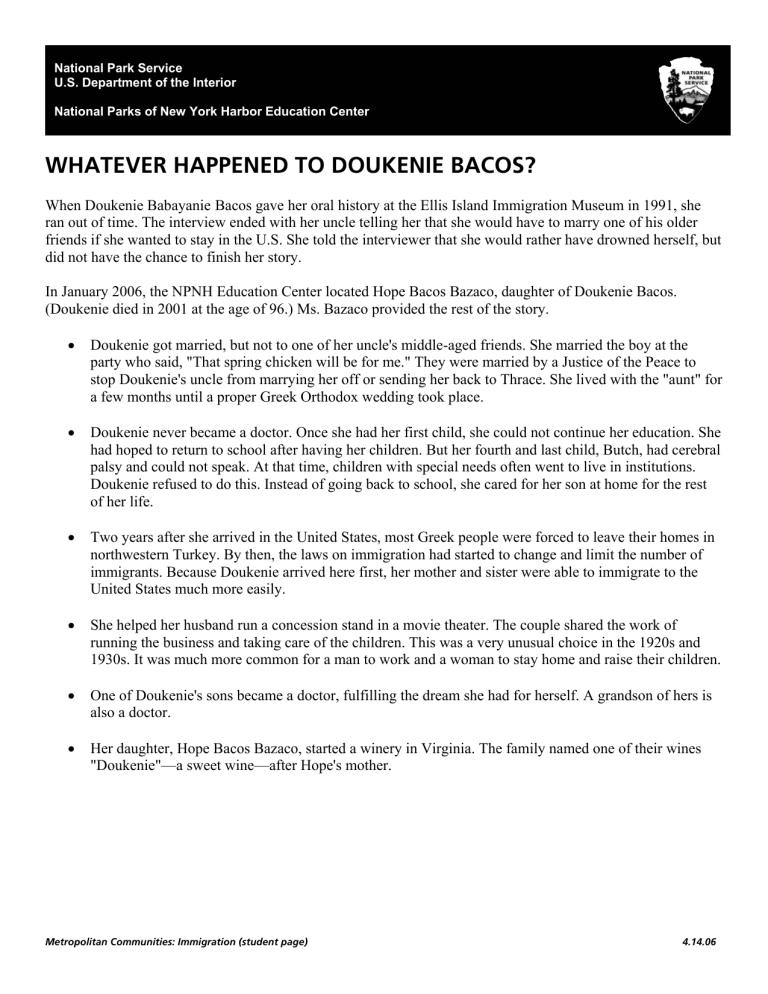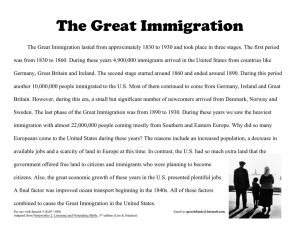Doukenie Bacos: An Immigrant's Story & Legacy

National Park Service
U.S. Department of the Interior
National Parks of New York Harbor Education Center
WHATEVER HAPPENED TO DOUKENIE BACOS?
When Doukenie Babayanie Bacos gave her oral history at the Ellis Island Immigration Museum in 1991, she ran out of time. The interview ended with her uncle telling her that she would have to marry one of his older friends if she wanted to stay in the U.S. She told the interviewer that she would rather have drowned herself, but did not have the chance to finish her story.
In January 2006, the NPNH Education Center located Hope Bacos Bazaco, daughter of Doukenie Bacos.
(Doukenie died in 2001 at the age of 96.) Ms. Bazaco provided the rest of the story.
• Doukenie got married, but not to one of her uncle's middle-aged friends. She married the boy at the party who said, "That spring chicken will be for me." They were married by a Justice of the Peace to stop Doukenie's uncle from marrying her off or sending her back to Thrace. She lived with the "aunt" for a few months until a proper Greek Orthodox wedding took place.
• Doukenie never became a doctor. Once she had her first child, she could not continue her education. She had hoped to return to school after having her children. But her fourth and last child, Butch, had cerebral palsy and could not speak. At that time, children with special needs often went to live in institutions.
Doukenie refused to do this. Instead of going back to school, she cared for her son at home for the rest of her life.
• Two years after she arrived in the United States, most Greek people were forced to leave their homes in northwestern Turkey. By then, the laws on immigration had started to change and limit the number of immigrants. Because Doukenie arrived here first, her mother and sister were able to immigrate to the
United States much more easily.
• She helped her husband run a concession stand in a movie theater. The couple shared the work of running the business and taking care of the children. This was a very unusual choice in the 1920s and
1930s. It was much more common for a man to work and a woman to stay home and raise their children.
• One of Doukenie's sons became a doctor, fulfilling the dream she had for herself. A grandson of hers is also a doctor.
• Her daughter, Hope Bacos Bazaco, started a winery in Virginia. The family named one of their wines
"Doukenie"—a sweet wine—after Hope's mother.
Metropolitan Communities: Immigration (student page) 4.14.06


